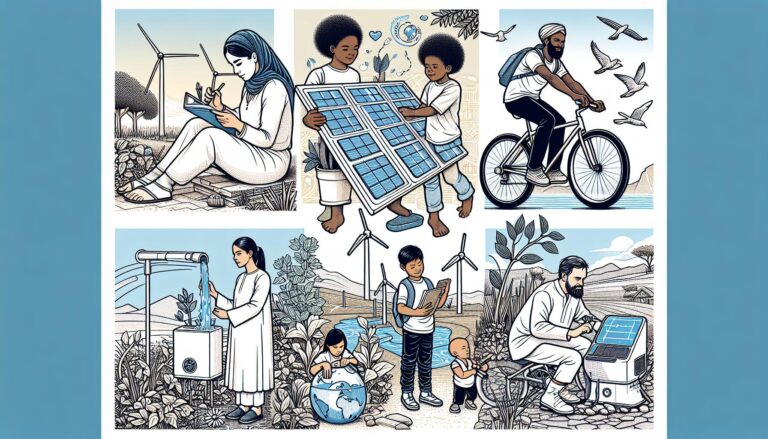Traveling is exhilarating, but not knowing the local language can be daunting. That’s why I’ve mastered minimalist language learning strategies for my adventures. With these techniques, I’ve effortlessly navigated foreign lands and connected with locals on a deeper level.
Benefits of Learning Languages for Travel
Learning the local language when traveling can open doors to unique experiences and meaningful interactions. It enables me to connect with locals on a deeper level and gain insights into their culture that are often inaccessible to non-speakers. Here are the key benefits I have found through my language learning experiences:
- Enhanced Communication: Speaking even a few words in the local language shows respect and warmth towards the local community. It helps in basic transactions, asking for directions, and engaging in simple conversations.
- Cultural Appreciation: Understanding the language provides a window into the way of life, traditions, and beliefs of the locals. It allows me to appreciate the cultural nuances and customs more profoundly.
- Local Insight: By speaking the local language, I have been able to discover hidden gems and off-the-beaten-path locations that are not typically found in guidebooks. Locals often share valuable recommendations unknown to most tourists.
- Safety and Comfort: Knowing the language improves my overall safety and comfort while traveling. In emergencies, being able to communicate clearly can be crucial in seeking help or assistance from locals.
- Personal Growth: Learning a new language, even at a basic level, challenges my cognitive abilities and broadens my perspective. It fosters a sense of accomplishment and boosts my confidence in unfamiliar environments.
Mastering a language for travel does not require fluency; even a few basic phrases can significantly enhance the travel experience. The benefits of language learning extend beyond mere communication – they enrich the journey and create lasting memories.
Importance of Minimalist Language Learning Strategies
When it comes to traveling, minimalist language learning strategies can be incredibly beneficial. Instead of striving for fluency, focusing on key phrases and essential vocabulary allows me to navigate new destinations with ease.
By mastering basic greetings, numbers, directions, and commonly used expressions, I can communicate effectively in various situations. This minimalist approach enables me to connect with locals, receive assistance, and show appreciation for their culture in a meaningful way.
Embracing minimalist language learning strategies doesn’t just make travel more convenient; it also fosters a sense of cultural immersion and respect. Even with limited language skills, I can engage with the local community, gain valuable insights, and foster authentic connections that enhance my overall travel experience.
Selecting Key Phrases and Vocabulary
When traveling, selecting key phrases and essential vocabulary is crucial. I focus on basic greetings, numbers, and directions as these are fundamental for effective communication in any language. Learning how to say “hello,” “thank you,” and “where is” can go a long way in navigating new destinations smoothly.
I emphasize practical phrases that are commonly used in daily interactions. Mastering phrases like “how much does this cost?” or “I need help” can help me handle various situations while traveling. Additionally, understanding numbers is essential for tasks like shopping, taking transportation, or making reservations.
In my experience, having a vocabulary related to food and dining is invaluable. Being able to order food, ask about ingredients, or request recommendations from locals enhances the dining experience. Moreover, knowing directional phrases such as “left,” “right,” “straight,” and “behind” is essential for navigating unfamiliar streets and locations.
By focusing on key phrases and vocabulary, I can engage in basic conversations, seek assistance when needed, and immerse myself in the local culture. This minimalist approach to language learning allows me to communicate effectively while showing respect for the language and customs of the places I visit.
Utilizing Language Learning Apps
When learning languages for travel, one of the most effective and convenient tools at my disposal is language learning apps. These apps offer a wide range of features and resources, making language acquisition more accessible and enjoyable. Here are some key reasons why I find language learning apps valuable for my travel preparations:
- Convenience: Language learning apps allow me to practice anytime, anywhere, fitting lessons into my busy schedule.
- Interactive Learning: Through interactive exercises, quizzes, and games, these apps keep me engaged and motivated to continue learning.
- Personalized Progress Tracking: Apps often provide personalized progress tracking, allowing me to monitor my advancements and stay motivated.
- Audio Pronunciation: A crucial feature for improving speaking skills is the audio pronunciation guidance offered by these apps.
- Vocabulary Building: Many apps offer vocabulary lessons tailored to various travel situations, helping me learn relevant words and phrases quickly.
By integrating language learning apps into my daily routine, I can efficiently enhance my language skills, making my travel experiences more immersive and rewarding.
Immersing Yourself in the Local Culture
Cultural immersion enhances travel experiences.
- Join local events to connect with residents and embrace traditions firsthand.
- Explore local markets for authentic tastes and cultural insights.
- Engage with locals for meaningful interactions and language practice.
Language skills deepen cultural understanding.
- Learning phrases shows respect and fosters connections.
- Understanding idioms adds depth to conversations and cultural insights.
- Respect cultural norms to build rapport and show appreciation.
- Participate in traditions for a glimpse into the local way of life.
Key Takeaways
- Learning local language enhances communication, cultural appreciation, and provides valuable local insights.
- Minimalist language learning strategies focusing on key phrases and essential vocabulary are beneficial for travelers.
- Select key phrases like greetings, numbers, and directions for effective communication in any language.
- Language learning apps offer convenience, interactive learning, personalized progress tracking, and audio pronunciation guidance.
- Cultural immersion through local events, markets, and engaging with locals enriches travel experiences and deepens understanding.
Conclusion
Traveling offers unique opportunities to immerse myself in diverse cultures. By engaging with locals, exploring markets, and learning phrases, I deepen my cultural understanding. Respect for traditions and embracing local customs not only builds connections but also shows appreciation for the destination. Learning languages enhances my travel experiences, allowing me to connect on a deeper level. Embracing different ways of life enriches my journeys and fosters meaningful interactions. With minimalist language strategies, I can navigate diverse cultures with ease and authenticity. Traveling with an open mind and a willingness to learn enriches my adventures and creates lasting memories.



